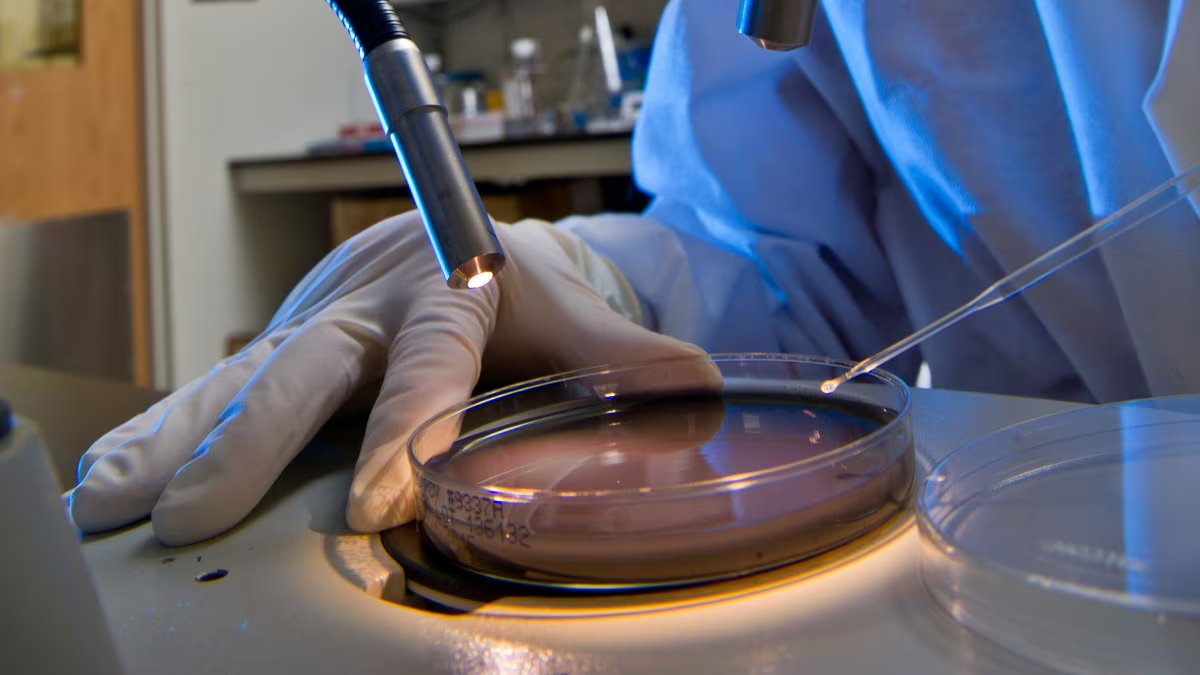Legionella Risk Assessment & Legionella Awareness Training: Safeguard Your Potable Water Systems
- Home
- Legionella Risk Assessment & Legionella Awareness Training: Safeguard Your Potable Water Systems

Legionella Risk Assessment
Legionella bacteria can pose significant health risks, especially in potable water systems where certain conditions—like sediment, biofilm, temperature, water age, and low disinfectant residuals—create a breeding ground for Legionella growth.
We offer comprehensive Legionella Risk Assessments to:
Evaluate Risk Factors (STAR): Assess the presence of sediment, biofilm buildup, water temperature management, system stagnation (water age), and disinfectant levels.
Design Mitigation Plans: Provide actionable recommendations tailored to your system to minimize Legionella growth and maintain compliance with regulations.
Ongoing Monitoring & Support: Implement long-term solutions, including routine water quality monitoring, to ensure a safe water supply.
By identifying and addressing these critical factors, we can help you protect both Guests, Residents, Employees and your water infrastructure.
What is Legionella Awareness Training?
Legionella awareness training is designed to educate individuals responsible for managing and maintaining water systems about:
- The risks associated with Legionella bacteria, including health implications (e.g., Legionnaires’ disease).
- The conditions that promote Legionella growth (e.g., temperature, stagnation, sediment, biofilm).
- Legal responsibilities and compliance with local regulations and standards (e.g., HSE’s Dubai Municipality Legionella Guidelines).
- Best practices for monitoring, managing, and controlling Legionella in water systems.
The training is tailored to ensure that duty holders, facility managers, engineers, and maintenance staff have the knowledge and skills required to manage Legionella risks effectively.
Why is Legionella Awareness Training Important?
1. Legal and Regulatory Compliance – Local Govt requirement that individuals managing water systems undergo adequate training to comply with legislation and standards. Failure to comply can lead to penalties, legal action, or reputational damage.
2. Health and Safety
Legionella bacteria can cause serious illnesses, including Legionnaires’ disease, which can be fatal. Awareness training ensures teams understand the health risks and prioritize water safety.
3. Proactive Risk Management
Awareness training enables early identification of risk factors (e.g., poor water system design, lack of maintenance) before they lead to bacterial growth or outbreaks.
It fosters a preventative approach rather than a reactive one.
4. Effective Implementation of Control Measures
Trained staff can effectively carry out risk assessments, monitoring, and maintenance, such as temperature checks, disinfectant dosing, and system flushing.
They also learn to interpret results and take corrective action when needed.
5. Organizational Confidence
Training ensures that everyone involved is competent and confident in their roles, reducing the likelihood of mismanagement or oversight.
It demonstrates your organization’s commitment to safety, boosting stakeholder trust.
6. Minimizing Outbreak Risks
Awareness and adherence to best practices significantly reduce the risk of outbreaks, safeguarding both public health and the reputation of the organization.
Legionella Testing & Control Methods
Our water sampling and testing services are conducted in ISO 17025-certified labs using the most reliable methods:
- Culture Method (ISO 11731)
- PCR Testing
- Direct Fluorescent Antibody (DFA)
Why Choose Wafa Labs for Legionella Risk Assessment & Awareness Training?
With years of experience in water safety, Wafa Labs is your trusted partner in Legionella management. Our services ensure that your facility stays compliant, your team is well-trained, and your water systems remain safe and bacteria-free.
Ready to safeguard your water systems?
📞 Contact Wafa Labs today to schedule your Legionella Risk Assessment and Training!
Frequently Asked Questions
-
1Who should attend Legionella Awareness Training?
The training is designed for: Facilities managers Maintenance staff Health and safety officers Building owners and landlords Housekeeping and cleaning staff Anyone responsible for managing or maintaining water systems.
-
2How long does the Legionella Awareness Training take?
Our Legionella Awareness Training typically lasts between 2 to 4 hours, depending on the depth of content and customization required for your team. It includes a presentation, interactive discussions, and a Q&A session to ensure participants fully understand the material.
-
3Is Legionella testing mandatory?
Yes, in many regions, Legionella testing is mandatory for certain types of facilities, such as: Hotels and resorts Hospitals and healthcare facilities Spas and wellness centers Industrial and commercial buildings Residential complexes with shared water systems Always check local guidelines to ensure compliance.
-
4What are the signs that Legionella might be present in my water system?
Common signs of potential Legionella contamination include: Unusual odors in water systems Discolored water Temperature fluctuations Biofilm buildup in pipes Scale or sediment deposits in tanks or systems Routine water testing and system maintenance can help detect and prevent Legionella growth.
-
5How often should Legionella risk assessments be conducted?
It’s recommended to conduct a Legionella Risk Assessment at least once a year. However, more frequent assessments may be required if: Water systems are modified Occupancy levels change Testing shows elevated bacteria levels An outbreak or incident occurs
-
6What are the legal requirements for Legionella risk management?
Many countries have strict regulations around Legionella risk management. For example, in the UAE, businesses must comply with Dubai Municipality guidelines for water quality testing, risk assessments, and Legionella control. Failure to meet these requirements can result in fines, penalties, or even closure orders.
-
7Where can Legionella contamination occur?
Legionella bacteria can thrive in cooling towers, hot and cold-water systems, fountains, pools, humidifiers, air washers, and more. Proper maintenance and regular testing are essential to prevent contamination.
-
8How often should a Legionella Risk Assessment be conducted?
While there is no strict federal mandate, it’s recommended to review and update the assessment annually, especially after any significant changes to your water system or building usage.
-
9What is a Legionella Risk Assessment?
A Legionella Risk Assessment involves a thorough evaluation of water systems to identify and manage risks associated with Legionella bacteria. The Wafa Labs team inspects water temperatures, chlorine levels, plumbing design, and areas prone to stagnation to detect potential hazards.


